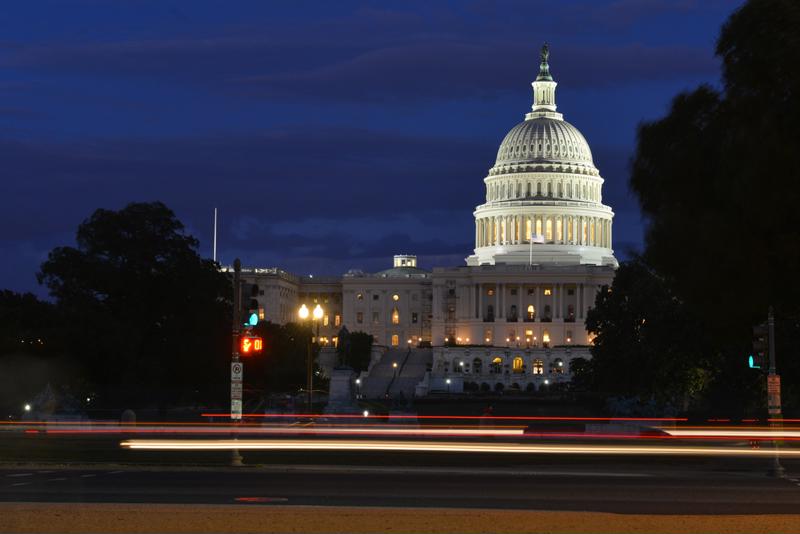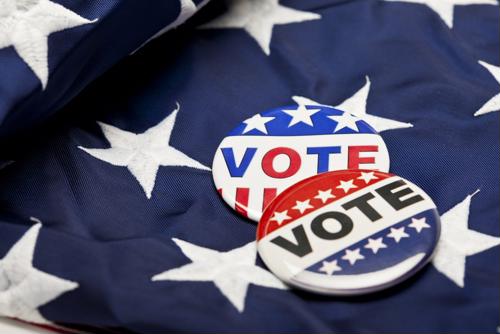Lawrence Lessig's "SuperPAC to end all SuperPACs" was met with limited success in the most recent midterms, but that hasn't stopped its opponent from pointing out a glaring failure to comply with Federal Election Commission regulations. While the disclosure laws that the Mayday PAC missed appear minor, the mistake may be politically costly for an organization that aims for no less than the complete reform of the U.S. electoral system.
In an open letter to FEC Chairman Lee Goodman and Vice Chair Ann Ravel, David Keating, President of the Center for Competitive Politics wrote that the Mayday PAC ran a series of television and radio advertisements in connection with the Congressional midterm in New Hampshire and mail pieces in Arizona that didn't comply with the disclaimer requirements mandated by the Federal Election Campaign Act. Keating speculated that other violations may exist, as not all communications produced by the Mayday PAC were readily available.
Specifically, the broadcast pieces in New Hampshire didn't comply with 52 U.S.C. § 30120(d)(2) and the mail pieces in Arizona didn't comply with 52 U.S.C. § 30120(a)(3), according to Keating's detailed documentation.
While the disclosure laws that the Mayday PAC missed appear minor, the mistake may be politically costly for an organization that aims for no less than the complete reform of the U.S. electoral system.
If Keating is to be believed regarding the contents of the Mayday PAC's disclosures, he appears to be correct. However, this places him in the unusual position of calling for the prosecution of Lessig's action committee based on regulations that his own organization was founded to combat. In the Center for Competitive Politics' own words, "The Center works to ensure that disclosure requirements do not become overly burdensome or threatening to donor privacy."
Compliance errors
The disclaimers included in the television ads run in New Hampshire read "PAID FOR BY MAYDAY PAC. NOT AUTHORIZED BY ANY CANDIDATE OR CANDIDATE'S COMMITTEE. MAYDAY.US." with a voice over audio stating the same, according to Keating's letter.
This comply's with 52 U.S.C. § 30120(a)(3), which requires that "if not authorized by a candidate, an authorized political committee of a candidate, or its agents, [the advertisement] shall clearly state the name and permanent street address, telephone number, or World Wide Web address of the person who paid for the communication and state that the communication is not authorized by any candidate or candidate's committee."
What was not included was a statement required under 52 U.S.C. § 30120(d)(2), which requires that, "any communication described in paragraph (3) of subsection (a) which is transmitted through radio or television shall include, in addition to the requirements of that paragraph, in a clearly spoken manner, the following audio statement: '__________ is responsible for the content of this advertising.'"
The radio ads in the state were similarly deficient, Keaton explained. Eight ads made the same blunder as the above video ads, failing to state "Mayday PAC is responsible for the content of this advertising," and five failed to state the "permanent street address, telephone number, or World Wide Web address" as mandated under 52 U.S.C. § 30120(a)(3). Finally, all of the ads used the phrase "not affiliated with any candidate or campaign" as opposed to the phrase specified, "not authorized by any candidate or candidate's committee."
Finally, the print pieces in Arizona were deficient in, again, the same way. While they included "Paid by for MAYDAY PAC," a mailing address and the phrase "Not affiliated with any candidate or campaign," they failed to use the phrase specified under 52 U.S.C. § 30120(a)(3).

Mayday PAC response
Lawrence Lessig's Mayday PAC was formed in order to "reduce the influence of money in politics by electing a Congress committed to fundamental reform by 2016," according to its website. In this light, it appears somewhat damning that the PAC was unable itself to comply with FEC regulations, even if in name only.
In a blog post, Lessig acknowledged the complaint filed by the Center for Competitive Politics. To his credit as a lawyer, Lessig did not explicitly refute Keating's claims, saying simply, "We believe in disclosure rules and will defend our ads at the FEC."
"To be clear: Every Mayday.US ad fully identified Mayday.US as its sponsor," he continued. "None could be confused about whom the ad was from, and anyone who cared could identify whom the PAC was funded by."
Lessig also took a chance to take a dig at Keating and the Center for Competitive Politics, noting that the organization testified against provisions of a proposed disclosure law in Massachusetts because the law "forced [citizens] to engage in government-required speech with many unnecessary words."
"Perhaps their filing against us — triggering an expensive proceeding for us and for the FEC — indicates they no longer take this position."
"Perhaps their filing against us — triggering an expensive proceeding for us and for the FEC — indicates they no longer take this position," Lessig concluded.
Possible conclusions
Keating's complaint noted that the the FEC has treated disclaimer violations allegations as "low rated" matters and has forgiven violations that it determined to be "oversights by amateurs or low-budget campaigns, or which were subsequently corrected." He writes that, while some of the Mayday PAC ads were corrected, some were not.
In this light, it seems clear that official repercussions from the FEC are unlikely to be serious, if not dismissed outright. However, the effects on the financing and reputation of the Mayday PAC may be more serious.

